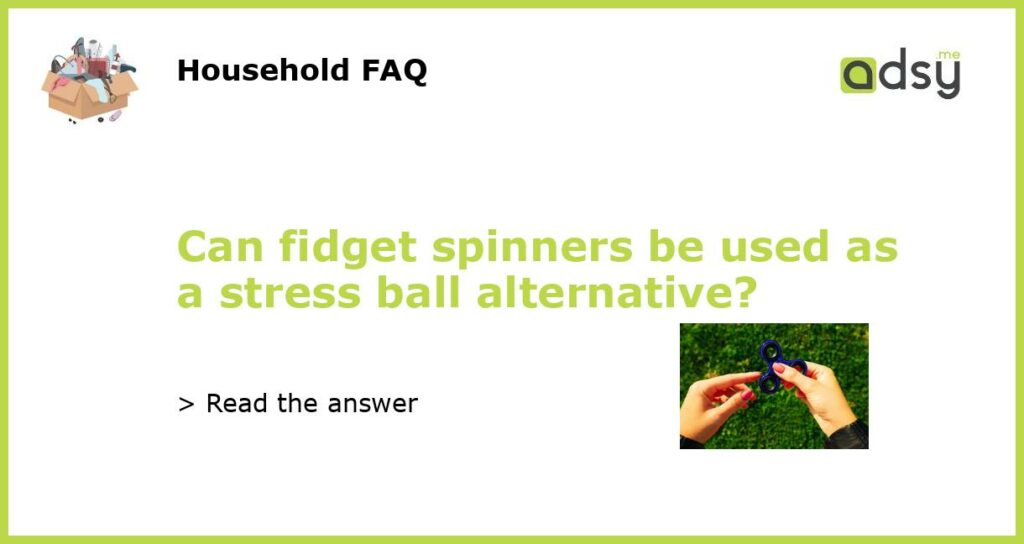What are fidget spinners?
Fidget spinners are small gadgets typically made of plastic or metal with three arms and a central bearing. Their original purpose was to help children with ADHD and other sensory issues to concentrate, but they quickly became popular toys among kids and adults. By spinning them between fingers, they produce a soothing sensation and help relieve boredom, anxiety and stress.
How do fidget spinners differ from stress balls?
Stress balls are soft, squishy balls, usually made of foam, rubber or gel, that are squeezed and released repeatedly to relieve muscle tension and promote relaxation. They are often used by office workers, athletes and patients recovering from injuries or surgeries. While fidget spinners are designed for tactile stimulation and mental focus, stress balls are meant to improve hand grip, blood circulation and joint flexibility.
Can fidget spinners replace stress balls for stress relief?
While fidget spinners and stress balls share some similarities in terms of sensory feedback and portability, they serve different purposes and are not interchangeable. Fidget spinners are more suitable for people who need to fidget or fiddle with objects to calm their nerves or keep their minds sharp, while stress balls are better for individuals who need to strengthen their grip or stretch their muscles. Moreover, fidget spinners may be distracting or annoying to others in quiet or crowded environments, whereas stress balls are silent and unobtrusive.
Are there any risks or benefits of using fidget spinners or stress balls?
Both fidget spinners and stress balls have been subject to controversy over their potential benefits and drawbacks. Some studies suggest that fidgeting can enhance cognitive performance and reduce stress, while others argue that it can be a distraction and a nuisance. Similarly, some experts recommend stress balls as a safe and effective tool for hand therapy and stress management, while others warn about the risk of injury or aggravation of certain conditions, such as carpal tunnel syndrome or arthritis. As with any tool or toy, it is important to use fidget spinners and stress balls in moderation, and consult a medical professional if you have any concerns or symptoms.
What are some alternative ways to manage stress without fidget spinners or stress balls?
If fidget spinners or stress balls are not your cup of tea, or if you want to add more options to your stress relief toolkit, there are many other techniques and activities that can help you reduce stress and improve your well-being. Some examples include:
- Meditation or mindfulness exercises
- Deep breathing or progressive muscle relaxation
- Exercise or physical activity
- Yoga or tai chi
- Creative outlets such as art, music or writing






